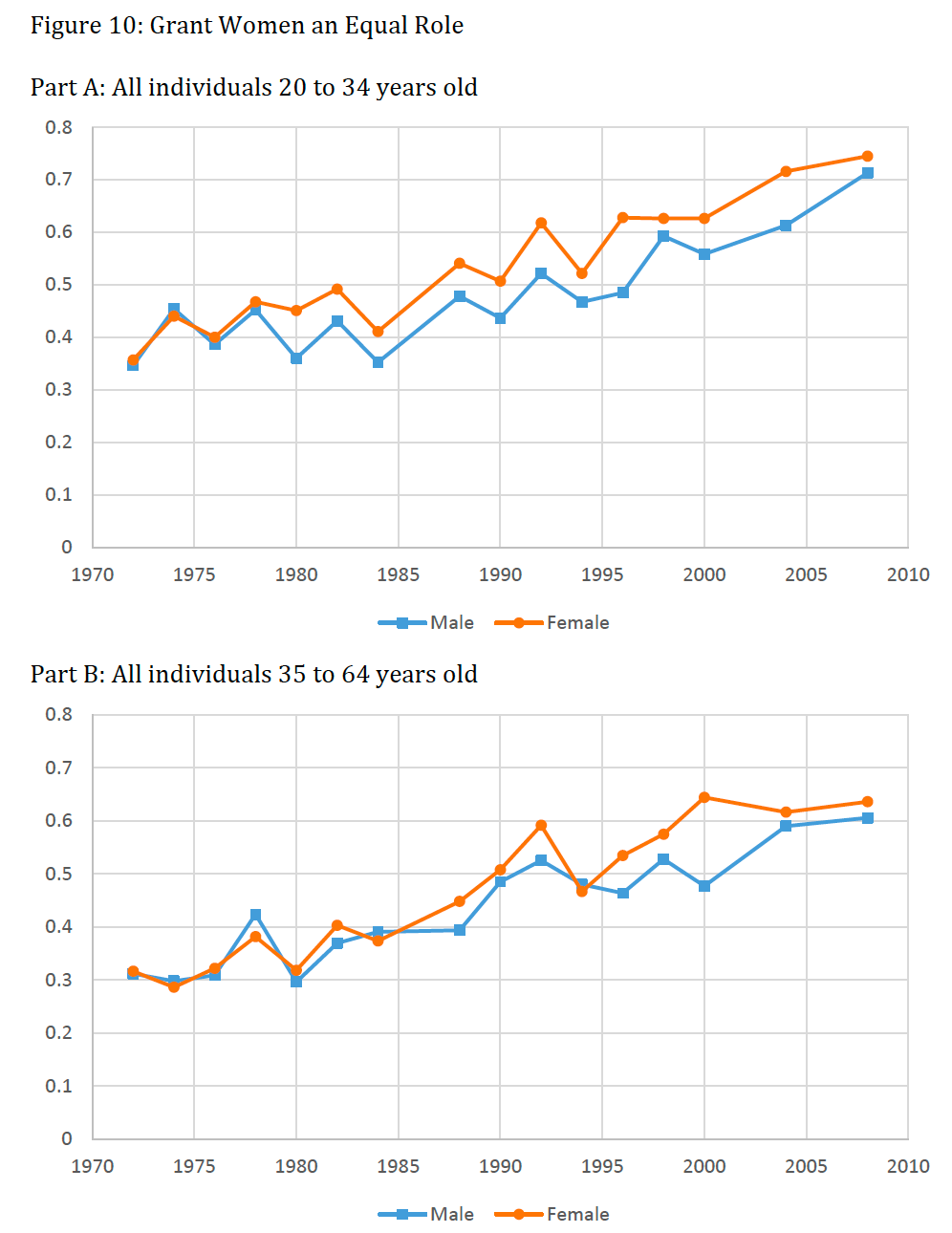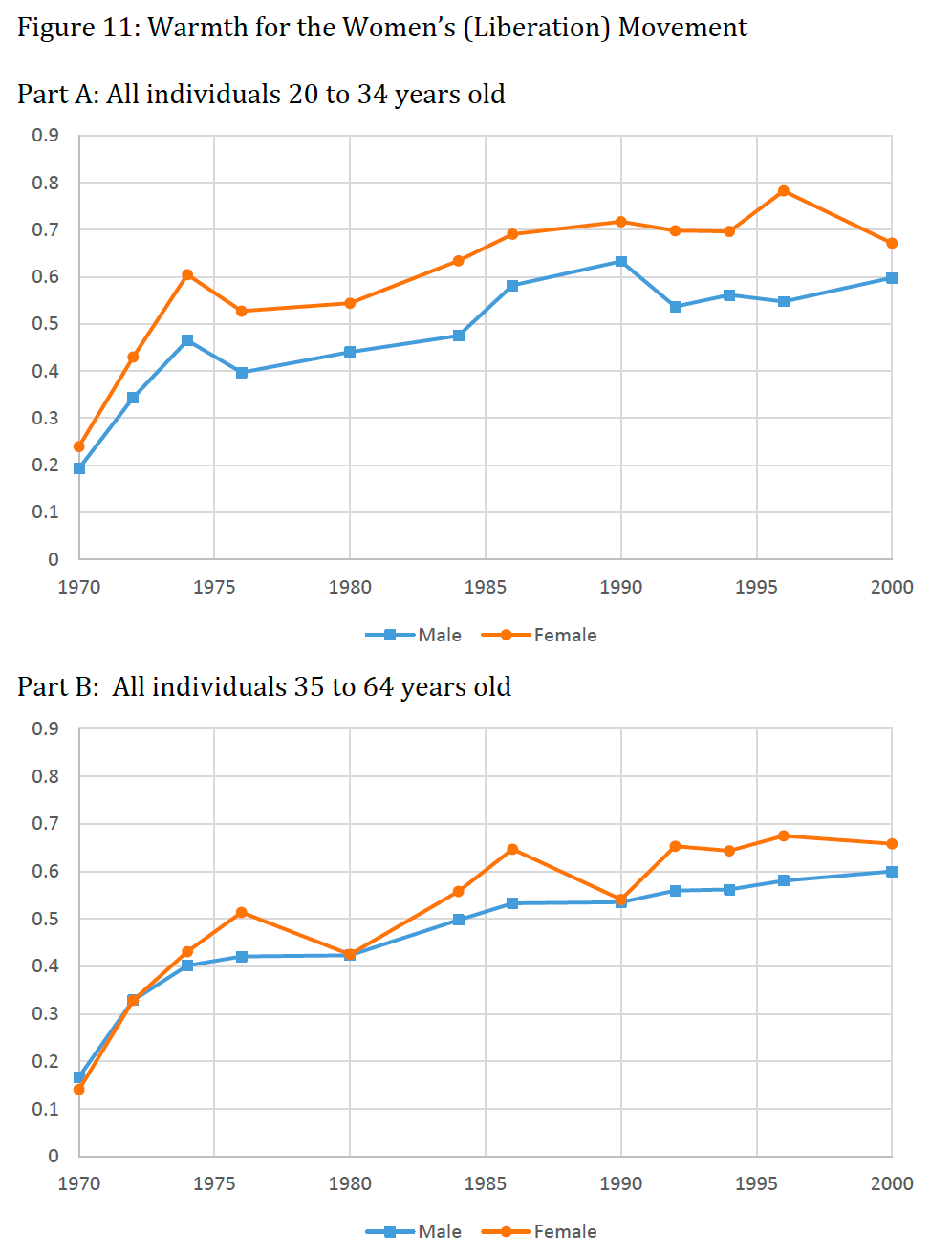Sexism in the USA
The US was very sexist, very recently.
Most Americans opposed female employment, maternal employment, a female president and strongly disliked the women’s liberation movement.
The graphs below come from Claudia Goldin’s new paper, “Why Women Won”.
Should married women work for pay?
Only 20% of US men in 1940 approved of married women earning money. Men were supposed to be breadwinners, married women’s work signalled his failure.
To put that in global historical perspective, when the same question is asked today, 54% of Pakistani men express support for female employment.
The table below comes from Bursztyn et al, who partnered with Gallup to understand individuals’ support for women working outside the home, and whether they anticipate community support.
Would you vote for a woman president?
Only a third of men in the 1930s said they’d vote for a woman president.
Pre-school children suffer if their mother worked
In the 1960s, most Americans thought maternal employment would cause infants to suffer. This view was pervasive, even among female college graduates.
Should women have an equal role in public life?
“Recently there has been a lot of talk about women’s rights. Some people feel that women should have an equal role with men in running business, industry, and government. Others feel that a women’s place is in the home … some people have opinions … in between. Where would you place yourself on this scale?”. 1 = equal role; 0 = all other answers
As recently as the 1970s, most Americans DISAGREED.
They did not think women should have an equal role in public life.
Warmth for the Women’s Liberation Movement?
In 1970, the vast majority of Americans were strongly opposed. Only 15% of middle-aged women were on board!
Within 5 years, more young women supported the women’s liberation movement.
Popularity remains limited.
Do you consider yourself a feminist?
Less than half of American women and only a third of men in 2010 considered themselves feminists.
Americans were very sexist, very recently.
Support for gender equality has since surged, yet the feminist movement lacks mainstream support. Why is this? Stay tuned for my next post. :-)











